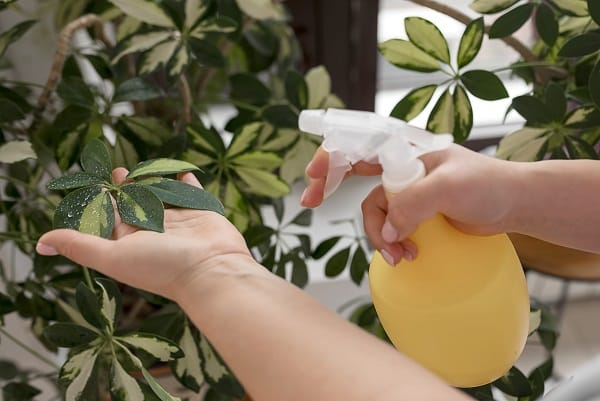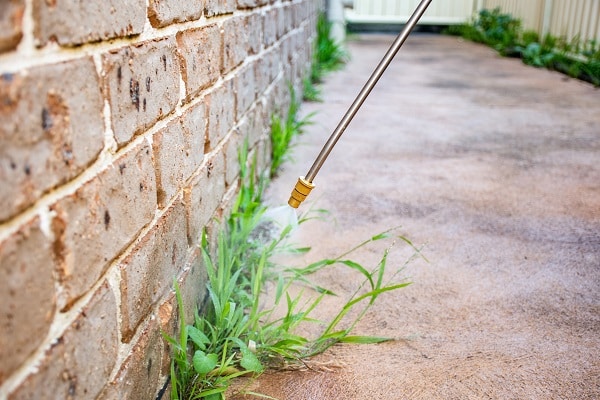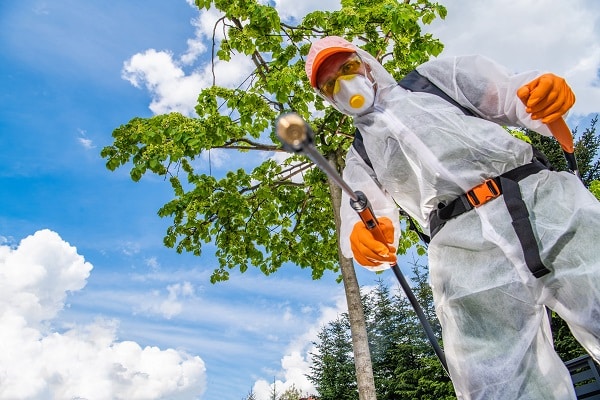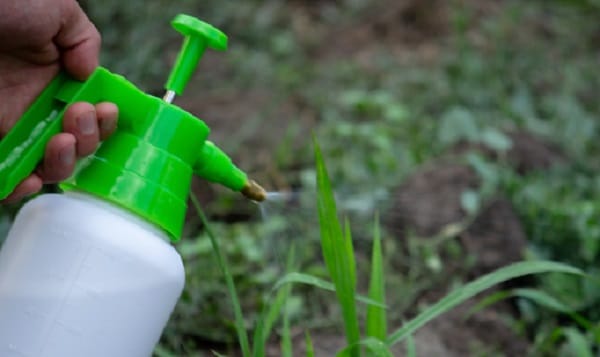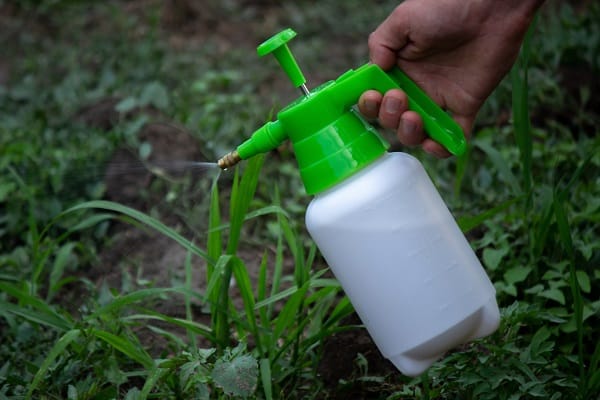The quest for a weed-free garden often leads to shelves stacked with chemical herbicides, but what if there was a safer, more eco-friendly option? Vinegar, a household staple, emerges as a natural alternative that is not only effective but also cost-efficient and safe for the environment. This article is here to guide you through the ins and outs of using vinegar as a natural weed killer. From understanding why vinegar is a viable option to preparing your own vinegar solution, you’ll find everything you need to wage war on weeds the natural way!
Contents
- 1 Why Choose Vinegar?
- 2 Types of Vinegar Suitable For Weed Killing
- 3 Preparing Your Vinegar Solution
- 4 How to Apply Vinegar for Weed Control
- 5 How to Apply Vinegar for Weed Control
- 6 Precautions And Safety Measures
- 7 Frequently Asked Questions
- 8 Troubleshooting Common Issues
- 9 Unleash The Power Of Vinegar In Your Garden!
Why Choose Vinegar?
The environmental impact of chemical herbicides is a growing concern. These chemicals can seep into the soil, contaminating water supplies and harming non-target plants and animals. In contrast, vinegar is a biodegradable substance that poses minimal environmental risk. It breaks down quickly, leaving no harmful residues in the soil or water.
Unfortunately, cost often becomes a deciding factor when choosing a weed control method. Commercial herbicides can be expensive, especially for large gardens or frequent applications. Vinegar, on the other hand, is a cost-effective alternative. Most households already have a bottle in the pantry, and even if you need to buy one, it’s relatively inexpensive. This makes vinegar a budget-friendly option for those looking to manage weeds without breaking the bank.
Types of Vinegar Suitable For Weed Killing
When it comes to using vinegar for weed control, not all types are created equal. White vinegar, commonly used for cleaning and cooking, is also effective for killing weeds. With an acidity level of about 5%, it can handle most common weeds. However, for tougher weeds, a higher concentration may be necessary.
Apple cider vinegar is another option, although it’s generally less effective than white vinegar for weed control. It has a lower acidity level and is often more expensive, making it less ideal for this purpose. For those dealing with particularly stubborn weeds, horticultural vinegar is an option. This specialized type of vinegar has a higher acidity level, usually around 20%, making it more effective but also more caustic. Therefore, extra care is needed when handling and applying it.
Preparing Your Vinegar Solution
The concentration of the vinegar solution plays a crucial role in its effectiveness. A higher concentration of acidity will be more effective but also more risky for surrounding plants. For most household white vinegar with a 5% acidity level, no dilution is necessary. However, dilution may be required for horticultural vinegar to reduce its potency and minimize risks.
Furthermore, adding other ingredients to the vinegar solution can enhance its weed-killing abilities. Dish soap, for example, can help the vinegar stick to the leaves of the weeds, making it more effective. Lemon juice is another additive that can increase acidity and boost effectiveness. A simple recipe might include one gallon of white vinegar, a cup of salt, and a tablespoon of dish soap. Mix these ingredients thoroughly before application to ensure an even and effective solution.
How to Apply Vinegar for Weed Control
Before diving into the weed-killing action, it’s crucial to have the right tools on hand. A simple spray bottle suffices for small areas or individual weeds, but for tackling larger patches, a garden sprayer offers greater efficiency. Regardless of the tool you choose, wearing gloves is non-negotiable. The vinegar’s acidity can irritate the skin, making protective gloves an essential part of your weed-fighting arsenal.
When it comes to the application itself, timing and weather conditions play pivotal roles. A sunny, calm day provides the ideal setting for your vinegar to work its magic. The sun enhances the vinegar’s efficacy, while the absence of wind ensures that the spray targets only the weeds, sparing your cherished plants. Aim the spray directly at the weeds, coating the leaves thoroughly for maximum impact.
How to Apply Vinegar for Weed Control
Equipped with your vinegar solution, you might be eager to start spraying away those pesky weeds. However, the tools you use for application can significantly impact the effectiveness of this natural weed killer. A spray bottle works well for small areas or isolated weeds, but for larger infestations, a garden sprayer could be more efficient. Don’t forget to wear gloves to protect your skin from the vinegar’s acidity.
Timing is everything when it comes to weed control. The best time to apply your vinegar solution is during a sunny, windless day. Sunlight accelerates the vinegar’s weed-killing properties, while calm weather prevents the solution from drifting onto plants you wish to keep. Be cautious when spraying, aiming directly at the weeds you want to eliminate to avoid collateral damage to neighboring plants.
Precautions And Safety Measures
While vinegar is a safer alternative to chemical herbicides, it’s essential to take some precautions. Always wear protective gear, such as gloves and eye protection, especially when handling more concentrated forms like horticultural vinegar. This will help you avoid skin irritation or eye damage. Also, keep pets and children away from the area until the vinegar has dried to ensure their safety.
It is also essential to keep in mind that vinegar is non-selective, meaning it can harm any plants it comes into contact with, not just the weeds. Exercise caution when spraying, and consider using a shield or barrier to protect desirable plants. If you’re using a more potent vinegar solution, test it on a small area first to gauge its impact. Proper storage and disposal of any leftover solution are also crucial. Store it in a well-labeled container away from children and pets, and dispose of any excess responsibly.
Frequently Asked Questions
You might be wondering if vinegar is safe for all plants. The answer is no; vinegar is non-selective and can harm or kill any plants it touches. Therefore, it’s crucial to apply it carefully, targeting only the weeds you wish to eliminate. If you accidentally spray a plant you want to keep, rinse it off immediately with water to mitigate the damage.
Another common question is about the frequency of application. Generally, one application will kill most weeds, but some tougher varieties may require a second or even third application. Monitor the treated area and reapply as needed, but always wait at least a few days between applications to assess the results. Overuse can lead to soil acidity issues, so moderation is key.
Troubleshooting Common Issues
Sometimes, despite your best efforts, you might encounter some issues when using vinegar as a weed killer. For instance, you may find that vinegar is ineffective on certain types of weeds. In such cases, consider using a more concentrated vinegar or adding a second application. Always remember to wait a few days between applications to assess the results.
In other instances, you might accidentally spray vinegar on plants you didn’t intend to harm. If this occurs, immediately rinse the affected plant with water to dilute the vinegar and minimize damage. As for concerns about the vinegar odor, it usually dissipates within a few hours to a day. If the smell lingers, you can mask it by sprinkling some coffee grounds or citrus peels around the treated area.
Unleash The Power Of Vinegar In Your Garden!
Ready to reclaim your garden from weeds without harming the planet? Now, you’re equipped with all the knowledge needed to use vinegar as a eco-friendly, effective, and natural weed killer. From choosing the right type of vinegar to taking necessary precautions, you’re set for a greener, cleaner garden. So why wait? Grab that bottle of vinegar and take the first step toward a weed-free paradise today!



